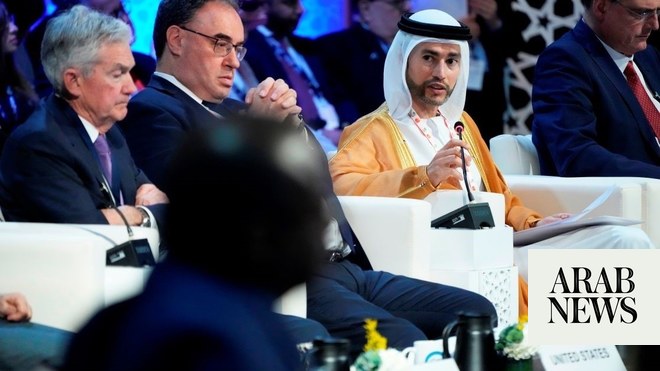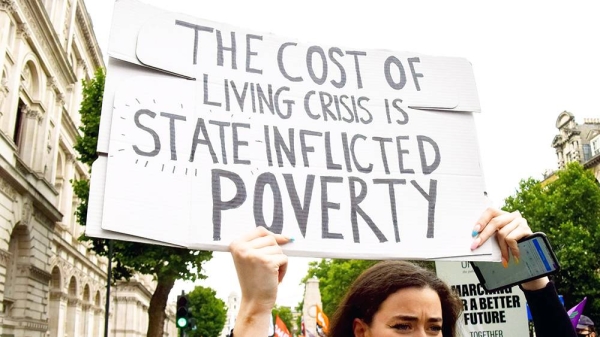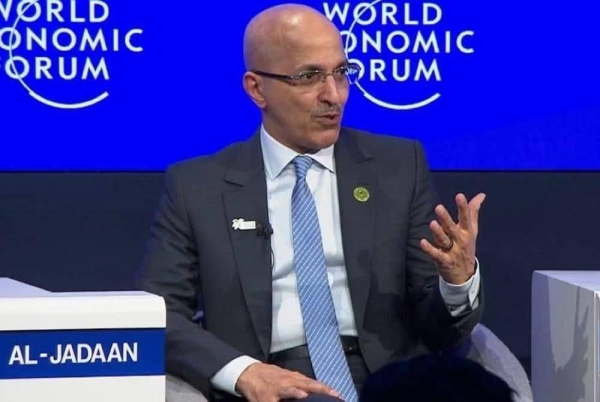
JEDDAH: Saudi Finance Minister Mohammed bin Abdullah Al-Jadaan has said that low-income countries will benefit from new commitments made by the International Monetary Fund.
Speaking at a press conference in Washington, DC, Al-Jadaan, who chairs the International Monetary and Financial Committee, revealed the completion of a review of the Poverty Reduction and Growth Trust. This initiative aims to enhance support for nations facing balance of payments challenges, according to the Saudi Press Agency.
Accompanied by IMF Managing Director Kristalina Georgieva, Al-Jadaan emphasized the necessity for both the IMF and World Bank to refine their strategies to assist countries grappling with liquidity issues. He also backed the IMF’s efforts to enhance capacity-building assistance and provide appropriate financing.
Leading the Saudi delegation at the IMF and World Bank annual meetings and the G20 Finance Ministers and Central Bank Governors meeting from Oct. 21 to 26, Al-Jadaan commended committee members for their collaboration and congratulated Georgieva on her reappointment as managing director.
He also announced the addition of a 25th seat on the IMF Executive Board, specifically designated for the African continent, marking a significant step in representation.
The IMFC serves as a strategic platform to address global economic growth, resilience, and financial stability. Saudi Arabia’s leadership in this committee underscores its commitment to multilateral cooperation and its role in promoting economic growth both regionally and globally.
During his visit to the US, Al-Jadaan engaged in discussions with key financial leaders, including US Treasury Secretary Janet Yellen, focusing on opportunities for economic cooperation.
Joined by Saudi Economy Minister Faisal Al-Ibrahim and Saudi Central Bank Gov. Ayman Al-Sayari, he also met with representatives from major financial institutions such as Moody’s, Fitch, S&P, BNP Paribas, and JP Morgan, discussing investment prospects in the Kingdom under Vision 2030.
“We discussed reforms in Saudi Arabia and their role in achieving robust economic growth,” Al-Jadaan noted in a post on his X account.
In another update, he stated: “In my meeting with US Treasury Secretary Janet Yellen, we explored economic and financial cooperation opportunities between our two nations.”
Al-Jadaan also met with Hayashi Nobumitsu, governor of the Japan Bank for International Cooperation, to discuss ways to strengthen cooperation between Saudi Arabia and JBIC, covering a range of mutual interests aimed at enhancing economic ties and investment opportunities.
The minister also attended the signing of a letter of intent between the Arab Monetary Fund and the Palestinian government for a Saudi-funded financial support program designed to boost the Palestinian economy.
Furthermore, he met with officials from the Japan Bank for International Cooperation and engaged in discussions with UK Chancellor Rachel Reeves and Sweden’s Finance Minister Elisabeth Svantesson about expanding partnerships.
During a session titled “Better, Bigger, and More Effective Multilateral Development Banks,” Al-Jadaan highlighted the need to enhance the operational effectiveness and financial capacity of Multilateral Development Banks to address the growing needs of developing nations, reaffirming Saudi Arabia’s support for the G20 roadmap to make MDBs more impactful.
In another session, he underscored the G20’s vital role in fostering global economic stability, referencing the group"s prompt response to the COVID-19 crisis under Saudi Arabia’s presidency in 2020, which included debt relief initiatives.
On the sidelines of the meeting, Saudi Deputy Finance Minister Khalid Bawazier participated in a roundtable discussion, emphasizing the Kingdom’s commitment to the Sustainable Development Goals, which are integral to Vision 2030.
Bawazier also attended the G20 Joint Meeting of Finance, Climate, Environment, and Foreign Affairs Ministers and Central Bank Governors, reiterating Saudi Arabia’s pledge to achieve net-zero emissions by 2060 through the Circular Carbon Economy framework, aligning with the nation’s economic diversification and development objectives.











